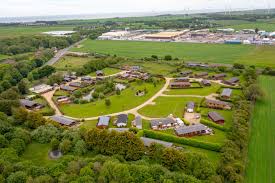The Impact and Legacy of Aga Khan in Modern Society

Introduction
The Aga Khan, heir to a long line of Ismaili Imams, is a figure of immense significance in both the religious and secular realms. His contributions to education, culture, and humanitarian efforts make him a prominent leader in the modern world. With a focus on development, pluralism, and the enhancement of quality of life for communities across the globe, his influence is notable and far-reaching.
Background and Role
His Highness, Prince Shah Karim Al Hussaini, is the 49th Imam of the Nizari Ismaili community, a sect of Shia Islam. Born in 1936 in Geneva, Switzerland, he became the Imam in 1957, following the death of his grandfather. The Aga Khan Foundation, established in 1967, has been instrumental in ongoing efforts to improve living conditions in developing countries. The foundation operates in over 30 countries, focusing on health, education, agriculture, and economic development.
Recent Initiatives
In recent years, the Aga Khan has been particularly focused on addressing pressing global issues such as climate change and public health. During the COVID-19 pandemic, the Aga Khan Development Network mobilised resources to assist vulnerable populations, safeguarding health services and contributing to vaccination efforts. Additionally, his work advocating for climate-resilient agricultural practices has gained prominence as societies seek sustainable solutions amid environmental challenges.
Legacy and Cultural Impact
Beyond philanthropy, the Aga Khan’s legacy includes a commitment to cultural pluralism. He encourages dialogue between different cultures and faiths, fostering understanding and collaboration among diverse communities. This commitment is reflected in the establishment of the Aga Khan Museum in Toronto, which highlights the artistic and cultural contributions of Muslim civilizations. His emphasis on education is also seen in various initiatives, including the University of Central Asia, which promotes regional development through higher education.
Conclusion
The Aga Khan’s influence extends beyond the Ismaili community- he is a beacon of hope for many in various fields, advocating for a better world. As the challenges of globalisation, climate change, and socio-economic disparities persist, the principles championed by the Aga Khan remain increasingly relevant. His legacy, underscored by a focus on compassion and understanding, will likely continue to inspire humanitarian efforts and cultural exchange well into the future.









